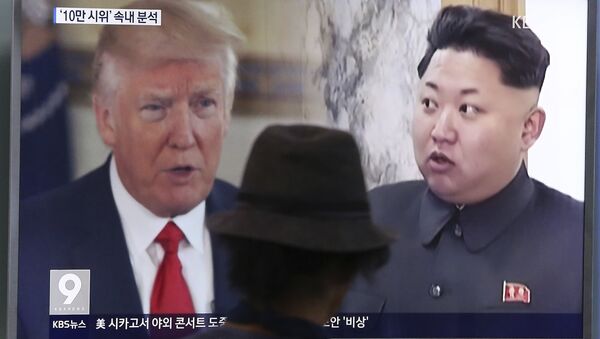“The United States national security state for decades has pursued a policy toward North Korea which is based on the idea that North Korea must buckle under US demands, and essentially give up any hope of having what many other countries regard as an essential deterrent to US military aggression against North Korea – and thus allow the US to bestow the gift of something closer to normal relations with North Korea,” award-winning investigative journalist Gareth Porter told Radio Sputnik’s Loud & Clear on Tuesday.
Porter calls this phenomenon "the US problem of dominance." Since the end of the Cold War, Washington has clung to the idea it has been in a position to demand "that other countries that are weaker than the US essentially buckle under" to US policies, Porter said.
US leaders’ sense of arrogance combined with their notion of being “guardians” of empire, as former State Department official Matthew Hoh told Sputnik News last week, has led to "war and occupation" in Iraq and Afghanistan, Porter told Radio Sputnik. The two costly conflicts will rack up $4 to $6 trillion in bills that Americans will eventually have to pay for via higher taxes.


